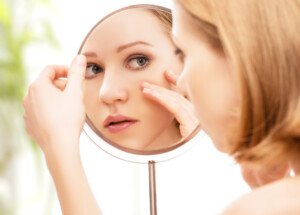A plastic surgeon gives advice about Accutane following a rhinoplasty (nose job).
Accutane is a drug that is commonly prescribed for the treatment of acne.
A regular user of Accutane for this purpose may wonder if there should be changes in the use of this medication after undergoing a nose job.
Is it safe to take Accutane after a rhinoplasty?
“This depends on the physician who did the surgery, as they would know how extensive the rhinoplasty was, and also on the prescribing physician, as they would have to make sure that everything has healed and there are no contraindications,” explains Allen Gabriel, MD, board certified plastic surgeon with PeaceHealth Medical Group Plastic Surgery in Vancouver, WA.
“The tip of the nose would be the concern, as this is sebaceous [contains a lot of sebaceous glands] and would be affected by Accutane.”
Sebaceous glands are small glands in your skin that secrete a lubricating oily substance called sebum into the hair follicles to lubricate the skin and hair.
Yes, your nose has hair follicles — plenty of them. It just doesn’t seem that way because the hair on your nose is light and very short. But it’s there.
Dr. Gabriel continues, “I would wait six months minimum before starting Accutane after facial surgery, given the fact that the scars are still healing and Accutane can significantly impact the healing phase.”
If you have not yet had your rhinoplasty, write down the questions about Accutane that you would like to have the answers to — and present them to the surgeon who is going to perform your nose job.
Make sure that your rhinoplasty surgeon and the physician who prescribed the Accutane are in communication with each other.
Then follow your doctors’ orders after the surgery. You may be instructed to gently massage, with your fingertips, your healing nose postoperatively for a while to aid in the healing process.
Side effects of Accutane include:
• Dry Skin and Lips: One of the most frequent side effects is severe dryness of the skin and lips, often leading to chapped and peeling areas.
• Dry Eyes and Nose: Accutane can cause dryness in mucous membranes, resulting in dry eyes, irritation, and nosebleeds.
• Increased Sensitivity to Sunlight: The medication can make your skin more sensitive to UV rays, increasing the risk of sunburn.
• Joint and Muscle Pain: Some users experience aches and pains in their joints and muscles, which can range from mild discomfort to more severe pain.
• Headaches: Frequent or severe headaches can occur as a side effect of Accutane treatment.
• Nausea and Digestive Issues: Gastrointestinal symptoms such as nausea, vomiting, and abdominal discomfort may arise.
• Mood Changes: There is a potential for mood swings, depression, or anxiety.
Although a direct link between Accutane and severe psychiatric symptoms is debated, it’s important to monitor any significant mood changes.
• Hair Thinning: Some users report thinning hair or temporary hair loss during treatment.
 Dr. Gabriel is adept at addressing a wide range of concerns, from breast reconstruction after mastectomy and the treatment of congenital anomalies, to complex facial and breast surgeries performed solely for cosmetic improvement.
Dr. Gabriel is adept at addressing a wide range of concerns, from breast reconstruction after mastectomy and the treatment of congenital anomalies, to complex facial and breast surgeries performed solely for cosmetic improvement.
 Lorra Garrick has been covering medical, fitness and cybersecurity topics for many years, having written thousands of articles for print magazines and websites, including as a ghostwriter. She’s also a former ACE-certified personal trainer.
Lorra Garrick has been covering medical, fitness and cybersecurity topics for many years, having written thousands of articles for print magazines and websites, including as a ghostwriter. She’s also a former ACE-certified personal trainer.
.






































